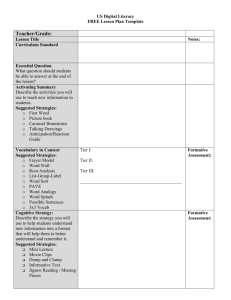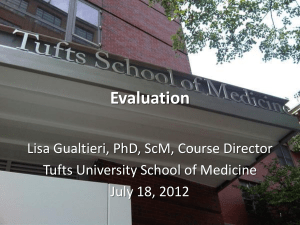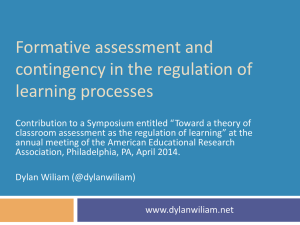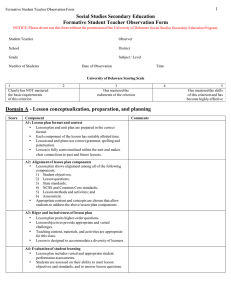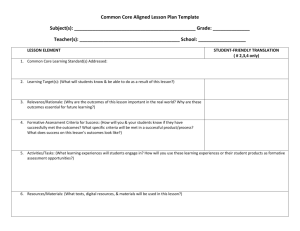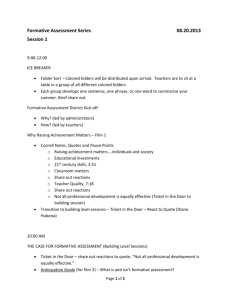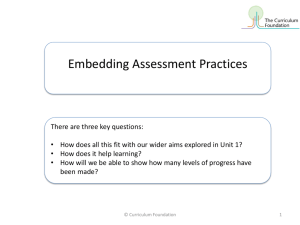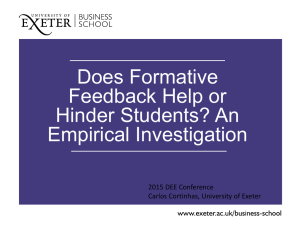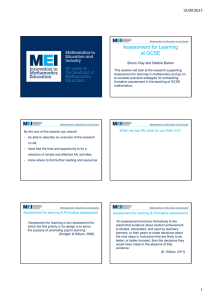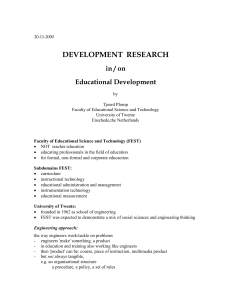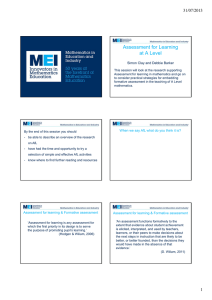Seminar at Thursday May 23, 2013 . Fast feedback formative
advertisement
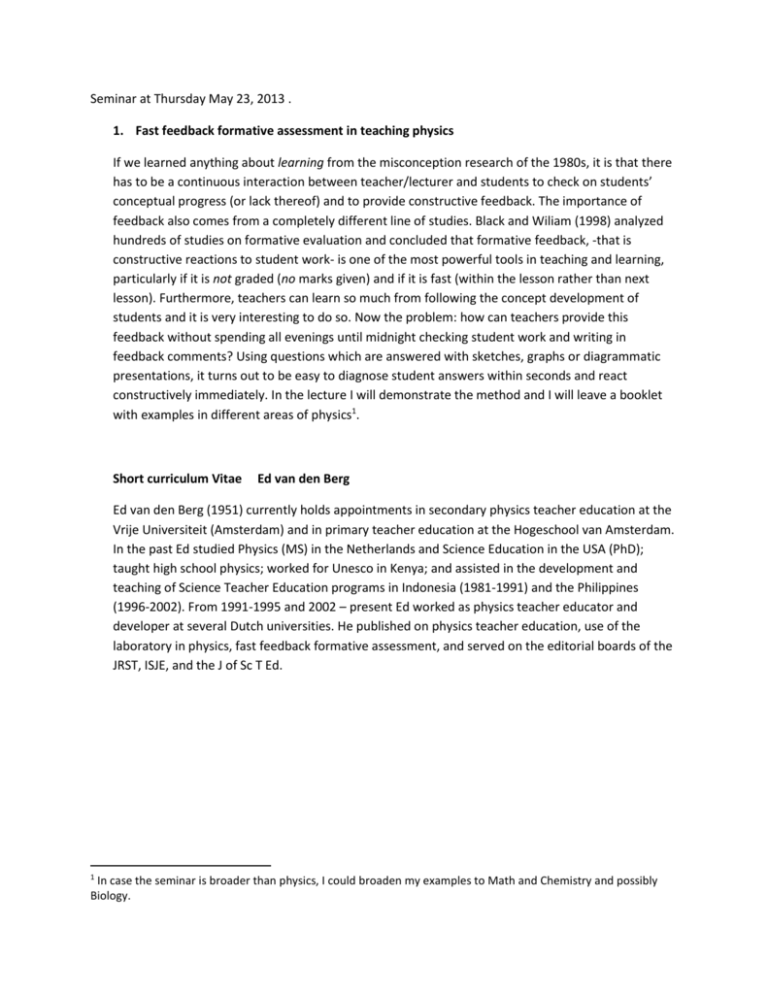
Seminar at Thursday May 23, 2013 . 1. Fast feedback formative assessment in teaching physics If we learned anything about learning from the misconception research of the 1980s, it is that there has to be a continuous interaction between teacher/lecturer and students to check on students’ conceptual progress (or lack thereof) and to provide constructive feedback. The importance of feedback also comes from a completely different line of studies. Black and Wiliam (1998) analyzed hundreds of studies on formative evaluation and concluded that formative feedback, -that is constructive reactions to student work- is one of the most powerful tools in teaching and learning, particularly if it is not graded (no marks given) and if it is fast (within the lesson rather than next lesson). Furthermore, teachers can learn so much from following the concept development of students and it is very interesting to do so. Now the problem: how can teachers provide this feedback without spending all evenings until midnight checking student work and writing in feedback comments? Using questions which are answered with sketches, graphs or diagrammatic presentations, it turns out to be easy to diagnose student answers within seconds and react constructively immediately. In the lecture I will demonstrate the method and I will leave a booklet with examples in different areas of physics1. Short curriculum Vitae Ed van den Berg Ed van den Berg (1951) currently holds appointments in secondary physics teacher education at the Vrije Universiteit (Amsterdam) and in primary teacher education at the Hogeschool van Amsterdam. In the past Ed studied Physics (MS) in the Netherlands and Science Education in the USA (PhD); taught high school physics; worked for Unesco in Kenya; and assisted in the development and teaching of Science Teacher Education programs in Indonesia (1981-1991) and the Philippines (1996-2002). From 1991-1995 and 2002 – present Ed worked as physics teacher educator and developer at several Dutch universities. He published on physics teacher education, use of the laboratory in physics, fast feedback formative assessment, and served on the editorial boards of the JRST, ISJE, and the J of Sc T Ed. 1 In case the seminar is broader than physics, I could broaden my examples to Math and Chemistry and possibly Biology.
